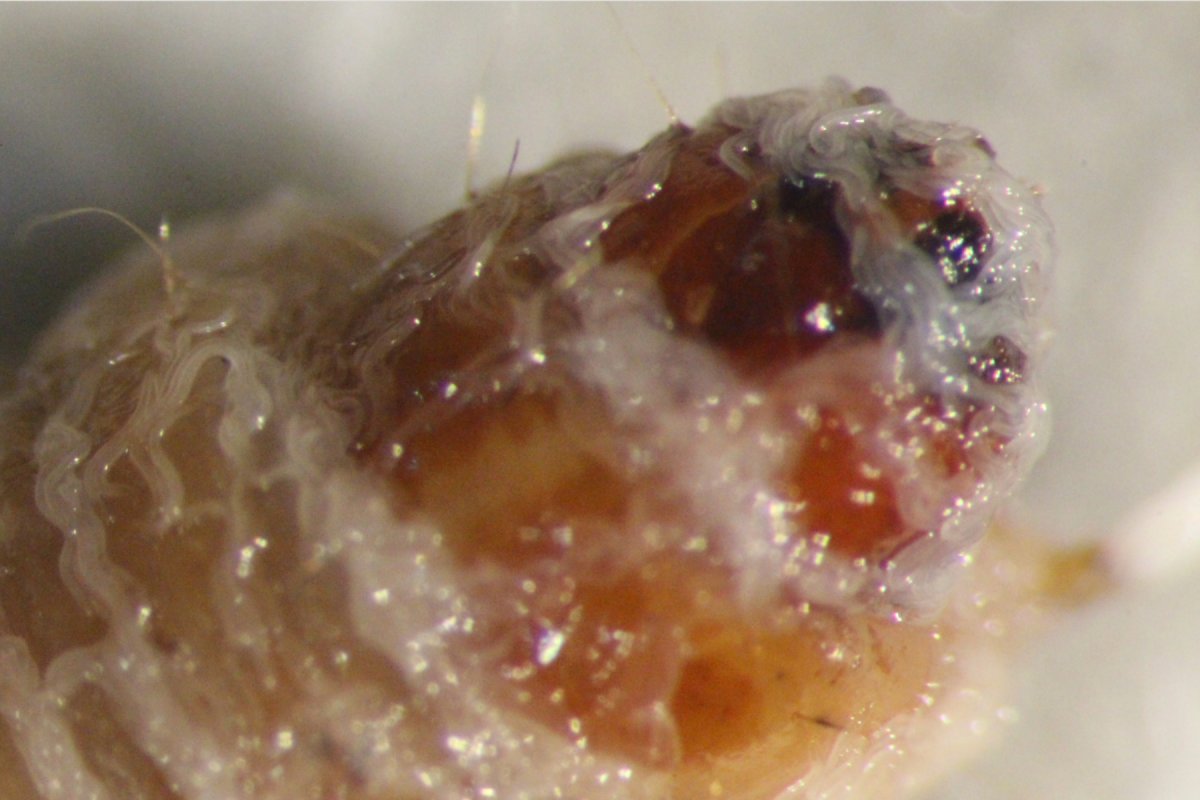A new species of tiny parasitic worm has been discovered, and it could be used to kill insect pests in place of chemical pesticides.
The new species, named Steinernema adamsi, is a type of worm known as a nematode, other species of which have been used for years to control and kill insects, according to a paper in the Journal of Parasitology.
When new species of these worms are discovered, scientists get excited, as they may have special properties that allow them to control some insects, or withstand different types of weather, enabling them to be used instead of pesticides.

"We spray trillions of them on crops every year, and they're easy to buy," Adler Dillman, a University of California Riverside nematology professor and co-discoverer of the new species, said in a statement. "Though there are more than 100 species of Steinernema, we're always on the lookout for new ones because each has unique features. Some might be better in certain climates or with certain insects."
This new species was discovered in samples of the soil below a longan tree in Thailand, and is minuscule at only around 0.04 inches long.
"We did DNA analysis on the samples and realized they weren't the ones we had requested. Genetically, they didn't look like anything else that has ever been described," Dillman said. "Several thousand in a flask looks like dusty water."
Nematodes are microscopic worms found in the soil and waterways that are often used in pest control as they naturally parasitize various insect pests such as larvae weevils, and soil-dwelling cutworms or grubs, among many others. The worms live as juveniles with sealed mouths, then infect soil-dwelling insect pests via the mouth or the anus. Once inside their host's body, the worms defecate out highly pathogenic bacteria into the insect.
"A parasite that poops out pathogenic stuff to help kill its host, that's unusual right out of the gate," Dillman said. "It's like something out of a James Cameron movie."
The insect usually dies rapidly, often within 48 hours of infection.
"It essentially liquefies the insect, then you're left with a bag that used to be its body. You might have 10 or 15 nematodes in a host, and 10 days later you have 80,000 new individuals in the soil looking for new insects to infect," Dillman said.
This form of pest control is known as biological control or biocontrol, and it's regularly used with other species of nematode to protect high-value crops such as lawns and gardens, citrus, cranberries and mushrooms.
The paper reveals that S. adamsi can indeed infect and kill insects, which was confirmed after experimenting with placing the nematodes in containers with wax moths.
"It killed the moths in two days with a very low dose of the worms," Dillman said.

The researchers hope to discover more of the new species' properties, such as which insects it can infect, and its limitations in terms of exposure to ultraviolet light, heat and dryness. The outlook is good, though: S. adamsi's cousin species are capable of infecting hundreds of insect species, meaning that S. adamsi is likely to be useful in pest control.
"This is exciting because the discovery adds another insect-killer that could teach us new and interesting biology," Dillman said. "Also they're from a warm, humid climate that could make them a good parasite of insects in environments where currently, commercially available orchard nematodes have been unable to flourish."
Do you have a tip on a science story that Newsweek should be covering? Do you have a question about nematode worms? Let us know via science@newsweek.com.
Uncommon Knowledge
Newsweek is committed to challenging conventional wisdom and finding connections in the search for common ground.
Newsweek is committed to challenging conventional wisdom and finding connections in the search for common ground.
About the writer
Jess Thomson is a Newsweek Science Reporter based in London UK. Her focus is reporting on science, technology and healthcare. ... Read more
To read how Newsweek uses AI as a newsroom tool, Click here.






